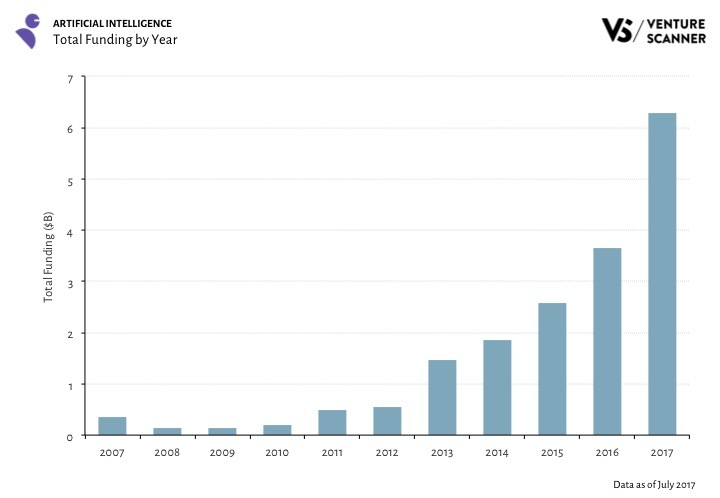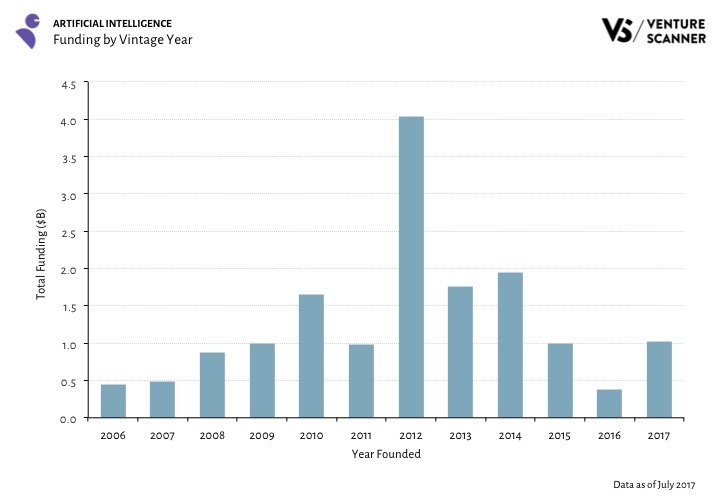As you know, there’s a ton of “AI Overhype” in the media these days. Is it just a bunch of blah blah chasing the new new thing? Don’t follow the words, follow the money.
2017 is the year AI start-up funding exploded, but not in the way you may think.
Take a look at this chart from Venture Scanner. Extrapolating out the July 2017 numbers, we’re looking at $13-14B of funding this year: 3 to 4x leap from last year and way more than the ~$10M raised 2007-2016.

Now, here’s where it gets interesting – take a look at this funding, but by the year the company was founded. More than 50% goes to more established, already-successful companies started between 2010-2014 (back when AI was still mostly an academic R&D project).
 You may ask, “maybe there was a couple of mega-deals that skews the data?” Nope. 25 solid start-ups with $50M+ raised (see the list below). You’ve got key-making kiosks using AI to “think like locksmiths.” And you’ve got digital lenders using AI to analyze 10,000 data points beyond a simple credit score. The Class of 2012 represents a great portfolio operating in diverse industries ripe for disruption.
You may ask, “maybe there was a couple of mega-deals that skews the data?” Nope. 25 solid start-ups with $50M+ raised (see the list below). You’ve got key-making kiosks using AI to “think like locksmiths.” And you’ve got digital lenders using AI to analyze 10,000 data points beyond a simple credit score. The Class of 2012 represents a great portfolio operating in diverse industries ripe for disruption.
My guess is that none of these entrepreneurs in 2012 set out to build an “AI start-up;” they simply built great data-driven businesses. And with great data, they could easily “add on” AI. As such, we can say that 2017 is the year AI start-up funding exploded; however, most of it went to “older” data-driven start-ups.
3 questions come to mind:
- Like AI, what technologies are under the radar today but will be “over the radar” in 5 years? Some say it’s quantum computing.
- Is 2017 the beginning or the end of the hockey stick growth pattern?
- The sexy AI-first companies get all the attention. AI-second companies already have scale, cash flow, data, and living, working applications. Why wouldn’t we look more at the huge potential impact of these companies first?

Final notes to myself:
- Is it funny to anyone else that these companies are counted as AI Start-Ups? You could argue that they’re neither AI-first nor a start-up ;).
- As I go forward digging into all this, I’ll try to be clear about whether a company is using AI as a platform (I’ll call it AI-first) or AI as a product (AI-second?).
More on AI:
